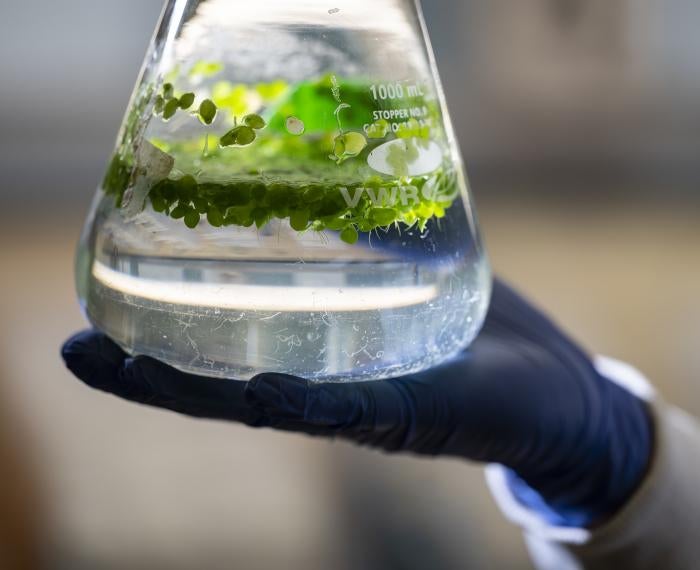
Subscribe to Pittwire Today
Get the most interesting and important stories from the University of Pittsburgh.Pitt biologists are part of a $12.5M NSF grant to study a widespread genetic phenomenon

A new $12.5 million National Science Foundation grant, won by a group of biologists including Pitt researchers, will fund the creation of an institute to study organisms with more than two copies of their chromosomes. Known as polyploidy, the phenomenon is key to aspects of agriculture and human health and appears throughout nature.
Pitt is one of the founding partners of the institute. Distinguished Professor Tia-Lynn Ashman and Assistant Professor Martin Turcotte, both of the Kenneth P. Dietrich School of Arts and Sciences, will use the tiny pond plant duckweed to tackle questions about the phenomenon ranging from the scale of genes to whole communities of organisms.
“We are in a unique position to make this connection across levels all within a single model organism,” Ashman said. “In addition, we will be leveraging the unique talents of our biological sciences outreach program, headed by Rebecca Gonda, to bring cutting-edge curriculum to the Pittsburgh area and beyond.”
[Read more: 836 Pitt undergrads studied how polyploidy could help duckweed cope with pollution.]
The grant will fund the creation of the Polyploidy Integration and Innovation Institute to examine the phenomenon across different organisms and scales. The project is led by Pamela Soltis of the University of Florida and includes faculty from Cornell University, Duke University and the University of Kentucky, among others.
Learn more about the institute on the Florida Museum news site.

